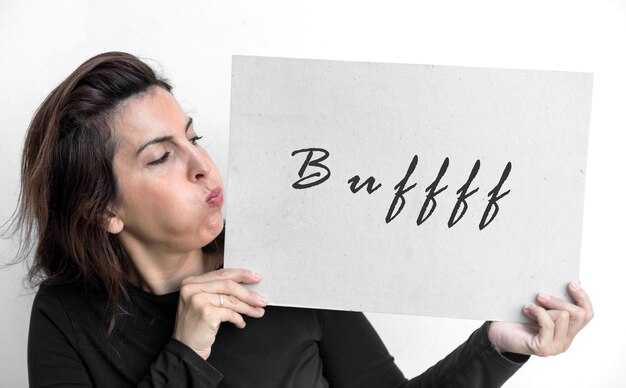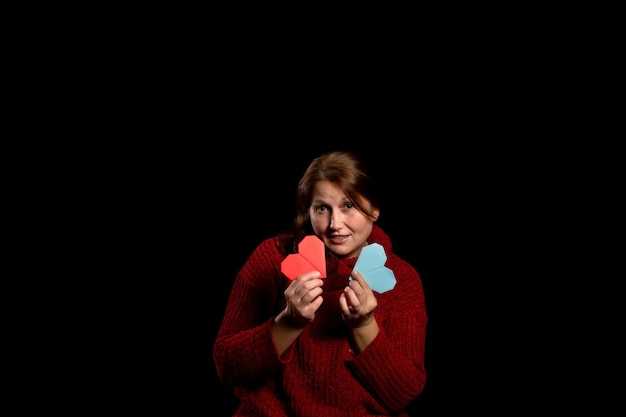Have you ever experienced someone retreating from you just as you finally allowed yourself to relax? One moment you’re sharing jokes, feeling connected and secure, thinking, “This is real.” Then suddenly things shift. Messages become sparse. The warmth cools. Conversations that used to flow stall, and you find yourself glued to your phone, endlessly refreshing and asking, “What did I do?” That sharp, bewildering silence — that’s what we’re unpacking here. The hard truth is: this isn’t about you being inadequate, too intense, or having ruined things. It’s often about avoidant attachment. People with avoidant patterns are some of the most bewildering partners because, paradoxically, they long for intimacy while simultaneously recoiling from it. Deep down they want closeness, belonging, and emotional safety. But the instant a relationship moves from casual fun into vulnerability and seriousness, their internal alarm goes off. Not because of anything you’ve done, but because of unhelpful wiring formed in earlier experiences where closeness was linked to pain. So what feels like emotional whiplash to you is their survival response. One minute they’re affectionate and present, and the next they withdraw, cold and distant. Your instinct is to panic — to chase harder, send another message, rewrite every interaction like a detective solving a crime, hoping that an explanation or reassurance will stop them from pulling away. But chasing rarely helps. The more you push, the more their defenses rise, trapping you in a repetitive loop: they retreat, you pursue; they shut down, you unravel. It’s exhausting and corrosive to your self-esteem. Before anything else, understand this: their pulling back does not measure your value. Let that sink in. Their withdrawal reflects their fear, not your shortcomings. Once you see that, everything begins to shift, because this isn’t simply about losing someone — it’s about reclaiming yourself. To understand why, picture this: you are parched and desperate for a glass of water, but the moment the glass reaches your lips panic sets in because you’re terrified of drowning. For someone with avoidant tendencies, love can feel precisely like that—wanted and needed, yet terrifying when it draws near. This reaction isn’t rational and it isn’t personal; it’s an old survival pattern formed when closeness once brought harm — perhaps love meant control, dependency led to abandonment, or vulnerability resulted in heartbreak. So their nervous system learned to protect itself by keeping distance. In practice, that means they will lean in occasionally — laugh, confess small things, hold hands — just enough to feel connected, and then abruptly pull back. Texts slow, eye contact fades, silence follows. You start questioning yourself: did I push? Did I say something wrong? No — their withdrawal is not a direct rejection; it’s an instinctive response to intimacy, a misreading of closeness as a threat. From their perspective, deep connection equals loss of autonomy and safety, so even when they desire love, their survival reflex tells them to run. This is why avoidant partners are so confusing: they’re warm one moment and remote the next, affectionate then absent, open then distant. It makes no sense externally, but it fits their internal logic because vulnerability feels like exposure to danger. The usual mistake people make is to react to the distance with frantic efforts to fix it. When you sense them pulling away, all of your systems scream to act — send another text, call, write a long message full of explanations and assurances to prove you’re safe. But here’s the paradox: that very effort ratifies what they fear. Your attempts to close the gap feel like pressure to them, and pressure confirms their belief that intimacy will suffocate them. The result is predictable and painful: you pursue, they withdraw farther, and you fall into self-doubt. Then, often, just when you’re almost resigned, they reappear — a late-night message, a sudden visit — and hope rises again, only for the pattern to repeat. This push-pull is not random; it’s their attachment system in motion. Recognizing that breaks the spell. Chasing doesn’t work with someone who avoids. The most effective response is counterintuitive: stillness. When a loved one begins to distance, your instinctive reaction may feel like an emergency, but rushing to fill the silence only strengthens their fear. Stopping — taking a breath and choosing calm — removes the pressure that triggers their defense. In the absence of your chasing, they’re left alone with the very quiet they created. Initially, that silence may feel safe and liberating to them, but over time it can grow heavy and lonely. Without constant reassurance, they may begin to notice what they’ve been missing. Silence forces them to confront whether their retreat is actually protecting them or simply keeping them isolated. Your quiet sends a clear, powerful message: you will not beg, you will not shrink yourself to make someone comfortable, and you respect your own boundaries. Avoidant people often expect pursuit; it validates their fear that closeness equals pressure. When you refuse to play that part and remain steady, you break the routine and demonstrate that connection can exist without coercion. Stillness is not coldness or manipulation — it’s self-respect. It says, “I won’t sacrifice myself to maintain your comfort,” and that stance does more than alter their behavior; it frees you. It gives you room to breathe, to reclaim your perspective, and to remember that your worth has never been contingent on staying. The common trap unfolds predictably: you feel the warmth withdraw; panic sets in; you analyze every message, every pause, and conclude you must have caused it. You chase, apologize, explain, and compress yourself to fit their diminishing space. Every time you do, you prove their fear that closeness means pressure and loss of self. You begin to internalize a damaging lie: love has to be earned by shrinking and performing. But that’s not love — it’s survival mode, and it depletes you. The turning point comes when you see their behavior for what it is: fear, not a verdict on your desirability. Stop bending yourself into proof. Stop scraping for scraps of affection. When you wake up to that distinction, you can step out of the cycle. This shift isn’t about fixing them or decoding every silence. It’s about reclaiming yourself through stillness. Decide not to abandon your standards or your peace to keep someone comfortable — that is power. Avoidant people are accustomed to being pursued and to partners overfunctioning during retreats. When that pattern stops, it undermines the belief that closeness equals control. You show them an alternative: intimacy without suffocation. More importantly, you reaffirm to yourself that you are not too much and not unworthy. When you stop personalizing their retreat, you stand in your truth: you deserve consistent care and someone who doesn’t flee at the first sign of need. What actually changes when you stop chasing? Two major things. First, the avoidant person is left to reckon with themselves. Without the constant reassurance, their supposed safety — the freedom of distance — begins to feel hollow. The distance that once felt protective can become a source of regret. Deprived of your pursuit, they may start to ask the uncomfortable questions they’ve avoided: Am I pushing away the very thing I want? Is my silence really protecting me or just leaving me alone? That’s the turning point where awareness can begin. Second, you begin your own recovery. Chasing drains you; every non-response chips away at your self-worth. When you cease the pursuit, you redirect that energy inward: you heal, seek support, rebuild friendships, reconnect with interests, and invest in growth. Your identity stops revolving around their choices. Your happiness becomes less contingent on their presence, and your sense of value returns to being intrinsic rather than conditional. From this place, their withdrawal no longer devastates you; it offers clarity. The result of this inward turn is self-realization and a kind of freedom. Many have been socialized to believe worth is granted by external validation and that love must be earned. Self-realization upends that mythology: you recognize that you are enough without outside confirmation. Once you see that, silence ceases to be a weapon and becomes information; distance becomes a signal to evaluate whether the relationship aligns with your needs. That awareness puts you back in the driver’s seat. Often, the moment you stop chasing is exactly when an avoidant notices the true cost of losing you, because they’re used to being sustained by your pursuit. They may return, or they may not. Either way, by then you’re in a position to decide if you want them back on your terms. That ability to choose — to prefer yourself and your life — is the real victory. Ultimately, the core message to carry with you is simple but profound: your worth has never been on trial. Their withdrawal isn’t proof that you’re inadequate; it’s evidence of their fear. Chasing, pleading, or shrinking yourself never repairs that. Standing firm in your values, practicing stillness, and preserving your peace are what change the dynamic. This work isn’t contingent on whether the avoidant heals or comes back. The essential question is whether you recognize what you mean to yourself. When you do, you stop chasing and start embodying the love and respect you deserve. You stop bending for attention and start demanding reciprocity with calm dignity. You no longer disintegrate when someone pulls away because you remain grounded in who you are. That is real power, and it’s yours to claim. So the next time you feel that ache of wondering whether they’ll return, pause and breathe. Ask a better question: will I want this person after I build the life I deserve? That mindset frees you. Whether they come back or not, you have already made the most important choice — you chose yourself, and no one can take that away. Stand firm, protect your peace, and remember: you have always been enough, and living from that truth changes everything.



 When Avoidants Finally Wake Up and Realize They Can’t Live Without You | Avoidant attachment style">
When Avoidants Finally Wake Up and Realize They Can’t Live Without You | Avoidant attachment style">

 Jak přestat UBLIŽOVAT svému partnerovi.">
Jak přestat UBLIŽOVAT svému partnerovi.">
 Why You Miss the Red Flags (Until You’re Already Trapped)">
Why You Miss the Red Flags (Until You’re Already Trapped)">
 Plánování "Intimity" Souhlasíte nebo Nesouhlasíte?">
Plánování "Intimity" Souhlasíte nebo Nesouhlasíte?">
 5 Trauma Habits That Are Secretly Ruining Your Life">
5 Trauma Habits That Are Secretly Ruining Your Life">
 Keep God out of Relationships.Right?">
Keep God out of Relationships.Right?">
 How to FIX your MARRIAGE! You’ll need these TOOLS!">
How to FIX your MARRIAGE! You’ll need these TOOLS!">
 Přesný okamžik, kdy vyhýbavý jedinec konečně praskne | Nejlepší motivační projev Mel Robbins">
Přesný okamžik, kdy vyhýbavý jedinec konečně praskne | Nejlepší motivační projev Mel Robbins">
 4 Questions Avoidants can’t answer, Don’t be Late, Ask them This | Jordan Peterson">
4 Questions Avoidants can’t answer, Don’t be Late, Ask them This | Jordan Peterson">
 Tyto znaky naznačují, že se vyhýbavý člověk cítí k tobě autentickou lásku (Psychologie)">
Tyto znaky naznačují, že se vyhýbavý člověk cítí k tobě autentickou lásku (Psychologie)">
 Jak ověřit iracionální pocity Vašeho partnera">
Jak ověřit iracionální pocity Vašeho partnera">